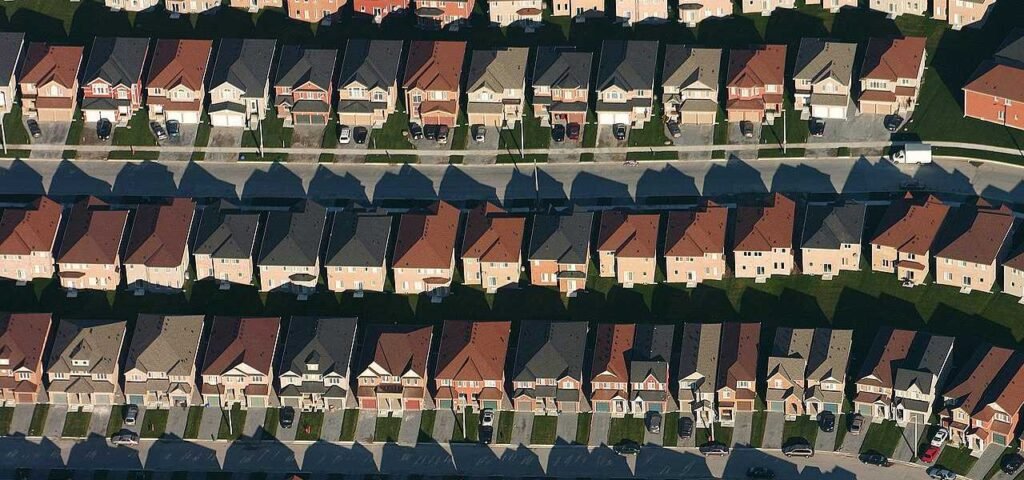
In the past, the traditional real estate industry was solely reliant on in-person meetings and phone calls to get deals done. However, with prop-tech (real estate technology), there are now a plethora of digital tools that make buying, selling, and managing property much easier. Real estate tech startups are receiving billions of dollars in investment, and many believe that this is only the beginning. If you’re curious about what prop-tech is and how it can benefit you, read on! In this blog post, we’ll explore everything from online listing services to virtual reality. Keep reading to learn more!
- What is PropTech and what does it encompass?
- How did PropTech come about and why is it so popular in the real estate market now?
- What are some of the most common PropTech tools and services used in real estate transactions today?
- How will the PropTech industry change the way we buy, sell, and rent property in the future?
- How can PropTech benefit agents, brokers, and homeowners alike?
- Are there any risks associated with using PropTech in the real estate sector?
- How can agents and brokers stay ahead of the curve when it comes to PropTech trends and developments?
- Can PropTech sector benefit the commercial real estate industry?
- How can proptech companies improve existing systems in residential properties?
- Conclusion
- FAQs
What is PropTech and what does it encompass?

Proptech, short for “property technology,” is a broad term that encompasses any type of technology that can be used to improve the efficiency of the real estate industry. This includes everything from apps that help landlords track repairs to 3D-printed homes. Proptech is often used interchangeably with “fintech,” or financial technology.
However, prop-tech specifically refers to the technology used in the real estate industry, while fintech can refer to any type of financial technology. Proptech is a rapidly growing industry, with new startups popping up all the time. Some of the most well-known prop-tech companies include Hover, Zumper, Lessen, Zillow, Qualia, Redfin, Reonomy, Opendoor, and HomeLight.
How did PropTech come about and why is it so popular in the real estate market now?

Proptech is an abbreviation for “property technology,” and it refers to the use of technology in the real estate industry. The term was first coined in early 2013 after the dot com boom by real estate entrepreneur Jeremy Kelly, and it has since gained traction as a way to describe the growing trend of using technology to streamline various aspects of the real estate business. This can include anything from using drones to inspect properties to using data analytics to identify trends in the housing market.
Proptech is particularly popular among millennial and Gen Z buyers, who are accustomed to using new digital technologies in all facets of their lives. For many young people, proptech makes the home buying process simpler and more efficient, which is a major selling point in today’s fast-paced world.
In addition, Proptech can also help to make the real estate industry more sustainable by reducing its reliance on paper documents and physical infrastructure. As Proptech continues to evolve, it is likely that its impact on real estate will only grow.
What are some of the most common PropTech tools and services used in real estate transactions today?

From software that helps manage properties to mobile apps that make it easier to find a new home, Proptech is changing the way real estate transactions are conducted. Here are some of the most common Proptech tools and services being used in the industry today:
1. Property management software
This type of software helps landlords and property managers keep track of repairs, rental payments, and other important details.
2. Home search apps
Home buyers and renters can use these apps to search for properties based on their desired location, price range, and other criteria.
3. Mortgage calculators
These online tools help potential home buyers determine how much they can afford to spend on a new property.
4. Virtual Property tours
With virtual tour technology, buyers can take a tour of a property without having to physically visit the site. This is especially useful for out-of-town buyers or those who have limited time to view properties in person.
5. Contract management software
This type of software helps real estate agents and brokers keep track of contracts, documents, and deadlines related to a transaction.
These are just a few of the many Proptech tools and services that are being used today by property owners, buyers, and real estate professionals. In the rapidly changing digital landscape, the real estate markets that rely more on technologies like artificial intelligence and real estate tech will have a competitive advantage.
How will the PropTech industry change the way we buy, sell, and rent property in the future?

The proptech industry is poised to revolutionize the way we buy, sell, and rent property. One of the most significant changes will be the increased integration of sustainability and security features into proptech products and services.
For example, many proptech startups are working on developing energy-efficient appliances, water management, and home automation systems that can help reduce a house’s carbon footprint.
In addition, proptech companies are also working on developing new ways to secure properties against burglaries and other threats. As the proptech industry continues to grow, we can expect to see more and more business and residential real estate companies incorporating these cutting-edge technologies.
How can PropTech benefit agents, brokers, and homeowners alike?

As the real estate industry becomes increasingly digitized, Proptech is beneficial for agents, brokers, and homeowners alike in many ways:
Benefits of Proptech for real estate agents
- Greatly increased efficiency and productivity
- Better organization and tracking of leads
- Streamlined communication with clients
- Access to powerful analytical tools to help identify trends and make informed decisions.
Benefits of Proptech for real estate brokers
- The ability to track real estate agent performance and metrics in order to make informed decisions about hiring, firing, and training.
- Improved communication and collaboration between agents.
- Greater efficiency in listing properties and matching buyers with the right homes.
Benefits of Proptech for homeowners
- Increased awareness of what’s happening in the residential real estate market thanks to predictive analytics tools.
- Easier access to potential buyers thanks to online listings and virtual tours.
- A faster, easier sale thanks to streamlined communication and efficient processes.
Thanks to Proptech, brokers can now do more than ever before to help their clients find the perfect home. Homebuyers can now search for homes online, view listings 24/7, and even get financing all from the comfort of their own homes using residential real estate technology. Plus, with new predictive analytics tools, brokers can help their clients identify upcoming trends in the housing market. As a result, both agents and brokers can now provide a higher level of service than ever before.
Are there any risks associated with using PropTech in the real estate sector?

As the real estate industry continues to embrace technological innovation, it’s important to be aware of the potential risks associated with Proptech. While Proptech can offer significant advantages in terms of efficiency and convenience, it also introduces new risks that need to be considered. Here are five of the most major risks to keep in mind:
1. Data security
One of the biggest concerns with any type of technology is data security. When sensitive information is stored electronically, it’s at risk of being hacked or leaked. This could potentially lead to identity theft, financial fraud, and other serious consequences.
2. System outages
Another risk associated with proptech is system outages. If a critical system goes down, it could cause delays and disruptions in the real estate sector. This could have a major impact on buyers, sellers, and agents alike.
3. User error
Another potential risk is user error. As with any type of technology, there’s always the potential for users to make mistakes that could result in serious problems. For example, an agent could accidentally enter the wrong information into a listing, or a buyer could misclick and send personal information to a scammer.
4. Dependence on technology
Another risk of Proptech is its dependence on technology. If we become too reliant on Proptech solutions, we may lose the ability to function without them. This could lead to serious problems if there’s ever a power outage or other technical issue that causes Proptech systems to go offline.
5. Job loss
Finally, one of the biggest risks associated with proptech is job loss. As more and more real estate processes are automated, there will be less need for human employees. This could lead to large-scale job losses in the industry, which would have detrimental consequences for the economy as a whole.
How can agents and brokers stay ahead of the curve when it comes to PropTech trends and developments?

Technology is changing the way we live, work, and play, and the real estate industry is no exception. Today’s consumers are more tech-savvy than ever before, and they’re increasingly using online tools to research properties, connect with agents, and even complete transactions. As a result, agents and brokers who want to stay ahead of the curve need to be up-to-date on the latest Proptech trends.
There are a number of ways to stay abreast of new developments in the Proptech space:
- Follow industry publications and trade journals that cover Proptech news.
- Attend proptech conferences and events, which provide an excellent opportunity to network with other real estate professionals and learn about the latest trends.
- Don’t forget to leverage social media; Twitter, LinkedIn, and Facebook are all great places to connect with others in the Proptech community and stay up-to-date on the latest news.
Can PropTech sector benefit the commercial real estate industry?

It’s no secret that the commercial real estate industry has been lagging behind when it comes to big data and technological innovation. However, that may be changing, thanks to the rise of proptech.
Of course, it remains to be seen whether Proptech will live up to its promise. However, there is no doubt that it has the potential to revolutionize the commercial real estate industry. With more and more money being funneled into Proptech startups every year, it seems likely that we will see more and more innovative new products and services in the years to come.
How can proptech companies improve existing systems in residential properties?

In recent years, there has been a growing trend of Proptech companies using new technologies to improve existing systems in residential properties. These tech companies have used tech to create smart buildings, homes, and appliances that are more efficient and convenient for both residents and parties involved in the transaction. As a result, Proptech has the potential to streamline transactions and reduce costs for all involved.
In addition, proptech platforms can provide actionable insights based on historical data, as well as real-time alerts about home value trends. As the largest asset class in the world, real estate is ripe for innovation, and proptech companies are leading the way in making our built environment smarter and more efficient.
Conclusion
It’s clear that Proptech is having a major impact on the real estate industry, and its potential to revolutionize the commercial real estate sector is huge. Agents and brokers who want to stay ahead of the curve need to be familiar with the latest trends and developments in the Proptech space. By following industry publications, attending conferences, and using social media, they can stay up-to-date. Proptech companies also have an important role to play in improving existing systems in residential properties. By using new technologies, they are making our built environment smarter and more efficient.
FAQs

How big is the PropTech industry?
The size of the PropTech industry is expected to grow significantly in the next decade. According to FMI, it could be worth as much as US$ 86.5 billion by 2032. This growth is being driven by a number of factors, including increasing investment from both VCs and corporates. In 2021, there were US$ 19 billion worth of investments in PropTech companies, which is double the amount from 2020. With such strong growth projections, it is clear that the PropTech industry is set to have a major impact on the future of the real estate sector.
What is smart real estate?
Smart real estate generally refers to using technology to increase efficiency and optimize the performance of a property. This can include everything from using energy-efficient appliances and LED lighting to installing smart thermostats and solar panels. By making simple upgrades, property owners can save money on utility bills, reduce their environmental impact, and make their homes or businesses more comfortable and convenient. In addition, many smart real estate solutions are now available for a relatively low cost, making them a great option for cash-strapped buyers.
What are smart cities?
A smart city is an urban area that uses technology to improve the efficiency of city operations and services. This can include everything from improving public transportation to reducing crime rates. Smart cities are often able to use data and analytics to make informed decisions about infrastructure and services, which can lead to a more sustainable and livable city.
Are there any prop tech courses?
PropTech courses typically cover topics such as real estate technology, investment analysis, and portfolio management. Students who complete a PropTech course will be prepared to work in the exciting and rapidly growing field of real estate technology.

Dean Emerick is a curator on sustainability issues with ESG The Report, an online resource for SMEs and Investment professionals focusing on ESG principles. Their primary goal is to help middle-market companies automate Impact Reporting with ESG Software. Leveraging the power of AI, machine learning, and AWS to transition to a sustainable business model. Serving clients in the United States, Canada, UK, Europe, and the global community. If you want to get started, don’t forget to Get the Checklist! ✅
